World Wrestling Entertainment (WWE) is a prominent American professional wrestling promotion owned by TKO Group Holdings, itself a subsidiary of Endeavor Group Holdings. It functions as a global integrated media and entertainment entity, extending its reach beyond wrestling through ventures in film, football, and the licensing of its intellectual property for video games and action figures. WWE has established itself as a leader in the sports entertainment industry.
January 7, 1953: First CWC Show Produced
On January 7, 1953, the first show under the Capitol Wrestling Corporation (CWC) was produced.
January 24, 1963: Lou Thesz defeats Buddy Rogers
On January 24, 1963, Lou Thesz defeated Buddy Rogers in Toronto for the NWA World Heavyweight Championship.
April 1963: WWWF Founded
In April 1963, Capitol Wrestling Corporation (CWC) left the National Wrestling Alliance (NWA) due to a booking dispute and became the World Wide Wrestling Federation (WWWF).
April 1963: Promotion of Rogers as NWA World Champion
Throughout April 1963, Buddy Rogers was promoted as the NWA World Champion, or simply the World Heavyweight Champion, in McMahon and Mondt's area after losing the title to Lou Thesz in January.
April 25, 1963: WWWF World Heavyweight Championship Created
On April 25, 1963, the WWWF World Heavyweight Championship was created, with Buddy Rogers purportedly winning a tournament in Rio de Janeiro.
June 1963: Willie Gilzenberg Named WWWF President
In June 1963, Willie Gilzenberg was named the first president of the WWWF.
May 7, 1965: Owen Hart's Birthdate
May 7, 1965, is mentioned as the birthdate of Owen Hart as part of an "In Memory" tribute displayed during a re-airing of the Over the Edge event on the WWE Network.
March 1979: WWF Acronym Usage
Since at least March 1979, both Titan Sports and the World Wide Fund for Nature (trademarked WWF) had been using the acronym "WWF".
1979: WWF Logo Usage
Starting in 1979, WWE was permitted to use the original WWF logo, which was explicitly exempted under the 1994 agreement.
February 21, 1980: Titan Sports, Inc. Incorporated
On February 21, 1980, Titan Sports, Inc., which is WWE's corporate entity, was incorporated by Vince McMahon.
June 6, 1982: Vince McMahon Buys Capitol Wrestling Corporation
On June 6, 1982, Vince McMahon bought Capitol Wrestling Corporation from his father.
June 1982: Capitol Wrestling Corporation Maintained Copyrights
Past June 1982, Capitol Wrestling Corporation maintained copyrights and ownership past the June 1982 date on WWF television.
1982: Start of Vince McMahon's Leadership Era
In 1982, a change in leadership of the WWE happened for the first time, which began Vince McMahon's leadership era.
June 1983: McMahon Takes Full Ownership of WWF
By June 1983, McMahon took full ownership of WWF after sealing the deal with loans and deals with other promoters and business partners.
1983: Titan Moves Offices to Stamford
In 1983, Titan Sports moved its offices to Stamford, Connecticut.
1983: McMahons Withdraw from NWA
In 1983, the McMahons and Jim Barnett withdrew from the NWA and McMahon began syndicating WWF programming across the United States.
January 23, 1984: Hulk Hogan defeats The Iron Sheik
On January 23, 1984, Hulk Hogan defeated The Iron Sheik at Madison Square Garden, marking a significant moment in WWF's expansion.
1985: Saturday Night's Main Event Debuts
In 1985, "Saturday Night's Main Event" debuted on NBC, marking the return of professional wrestling to network television since the 1950s.
July 16, 1986: Alleged Sexual Assault by Vince McMahon
On July 16, 1986, Rita Chatterton alleged that Vince McMahon attempted to force her to perform oral sex and then raped her in his limousine.
1987: WrestleMania III Sets Attendance Record
In 1987, WrestleMania III at the Pontiac Silverdome set an attendance record of 93,173 for the WWF.
1987: New Titan Sports, Inc. Established in Delaware
In 1987, a new Titan Sports, Inc. was established in Delaware.
1987: WWF Implements Drug-Testing Policy
In 1987, the World Wrestling Federation (WWF) implemented a drug-testing policy, initially managed by an in-house administrator.
February 1988: Titan Sports Consolidated
In February 1988, the new Titan Sports, Inc. established in Delaware was consolidated with the Massachusetts entity.
1988: Mel Phillips Temporarily Dismissed from WWF
In 1988, Mel Phillips was temporarily dismissed from the WWF due to sexual misconduct, but was brought back that same year.
1988: WWF Brings Phillips Back After Dismissal
In 1988, WWF brought Mel Phillips back after a temporary dismissal, after which Vince McMahon made Phillips promise to "stop chasing after kids".
1988: Hogan vs. Andre Rematch on The Main Event
In 1988, a rematch between Hulk Hogan and André the Giant took place on The Main Event I and was watched by 33 million people.
1991: WWF Introduces Independent Steroid Testing
In 1991, WWF wrestlers underwent independent testing for anabolic steroids for the first time, marking a change from the previous in-house administration of the drug-testing policy.
April 3, 1992: Rita Chatterton Allegation
On April 3, 1992, Rita Chatterton, a former WWF referee, appeared on Geraldo Rivera's show "Now It Can Be Told" and alleged that Vince McMahon sexually assaulted her in 1986.
1992: Mel Phillips Fired from WWF
In 1992, Mel Phillips was fired from the WWF amidst accusations of molesting multiple "ring boys," who were under-aged children working as part of the WWF ring crew.
1992: WWE Talent Exchange Agreements Begin
In 1992, WWE started establishing talent exchange agreements with various independent wrestling companies, including Smokey Mountain Wrestling (SMW), Super World of Sports (SWS), WAR, and the United States Wrestling Association (USWA).
1992: WWF Hit with Steroid Allegations
In 1992, the WWF faced allegations of steroid abuse and distribution.
January 1993: Monday Night Raw Debuts
In January 1993, the WWF debuted its flagship cable program, "Monday Night Raw".
1993: Jim Hellwig Legally Changes Name to Warrior
In 1993, Jim Hellwig, known as "The Ultimate Warrior", legally changed his name to the mononym Warrior.
1993: Vince McMahon Indicted in Federal Court
In 1993, Vince McMahon was indicted in federal court following a steroid controversy, leading him to temporarily relinquish control of the WWF to his wife Linda.
1994: WWF Logo Usage Agreement
In 1994, Titan Sports and the World Wide Fund for Nature reached an agreement regarding Titan's use of the "WWF" acronym.
1994: Agreement Between Titan Sports and World Wide Fund for Nature
In 1994, Titan Sports and the World Wide Fund for Nature reached an agreement regarding Titan's use of the "WWF" acronym. Titan agreed to minimize use of the acronym, and the environmental group agreed to drop litigation.
1994: Vince McMahon Acquitted of Steroid Charges
In 1994, Vince McMahon was acquitted of charges related to steroid distribution to WWF wrestlers, and he resumed his role in the day-to-day operations of the WWF.
September 1995: Monday Nitro Premieres
In September 1995, WCW countered "Monday Night Raw" with its own program, "Monday Nitro".
1996: Austin 3:16 Speech
In 1996, Stone Cold Steve Austin delivered his "Austin 3:16" speech after defeating Jake Roberts at King of the Ring.
1996: Titan Sports Sues WCW
In 1996, Titan Sports, the parent company of the World Wrestling Federation, sued World Championship Wrestling (WCW) over WCW's implications that Scott Hall and Kevin Nash were invading WCW on WWF's behalf.
1996: Nitro Begins Ratings Domination
In 1996, WCW's Monday Nitro began a nearly two-year ratings domination over WWF's Monday Night Raw.
1996: WWE Talent Exchange Agreements End
In 1996, WWE concluded its talent exchange agreements with independent companies such as Smokey Mountain Wrestling (SMW), Super World of Sports (SWS), WAR, and the United States Wrestling Association (USWA), agreements which had been in place since 1992.
1996: Lawsuits and Legal Actions Between Warrior and WWF
In 1996, Warrior and the WWF engaged in a series of lawsuits and legal actions regarding ownership of the characters Warrior and Ultimate Warrior.
1996: WWF Ceases Independent Drug Testing
In 1996, independent testing for anabolic steroids within the WWF was discontinued due to financial constraints caused by the increased popularity and competition from World Championship Wrestling.
1997: Montreal Screwjob
1997 ended with McMahon facing real-life controversy following Bret Hart's controversial departure from the company, dubbed as the Montreal Screwjob.
1997: WWE Partners with the National Wrestling Alliance (NWA)
In 1997, WWE began a partnership with the National Wrestling Alliance (NWA), showcasing NWA matches on WWE programming as part of "an invasion" storyline.
1997: WWE Partners with AAA for Royal Rumble
In 1997, WWE collaborated with Mexico's AAA promotion, bringing in several AAA wrestlers for the Royal Rumble event and the namesake match.
1997: WWE Partners with Michinoku Pro Wrestling
In 1997, WWE partnered with Japan's Michinoku Pro Wrestling (MPW), featuring MPW talent in the company's light heavyweight division and in their 1997 Light Heavyweight Championship tournament.
1997: WWF Hires Former WCW Talent
In 1997, before the Montreal Screwjob, the WWF hired former WCW talent, including Stone Cold Steve Austin, Mankind, and Vader.
1998: End of the "New WWF Generation" Logo Usage
From 1994 through 1998, the "New WWF Generation" logo was used. After this time, the use of the WWF "scratch" logo became prohibited on all WWE properties.
1998: WWE Continues Partnership with the National Wrestling Alliance (NWA)
In 1998, WWE continued its partnership with the National Wrestling Alliance (NWA), with WWE hosting NWA matches on its programming as part of "an invasion" storyline that began in 1997.
1998: Lawsuits and Legal Actions Between Warrior and WWF
In 1998, Warrior and the WWF engaged in a series of lawsuits and legal actions regarding ownership of the characters Warrior and Ultimate Warrior.
April 29, 1999: WWF Returns to Terrestrial Television
On April 29, 1999, the WWF made its return to terrestrial television with SmackDown! on UPN.
May 23, 1999: Owen Hart's Death at Over the Edge
On May 23, 1999, Owen Hart tragically died in Kansas City, Missouri during the Over the Edge pay-per-view event due to a stunt gone wrong. The cause of death was internal bleeding from blunt force trauma. WWF continued the event controversially and later paid a settlement to the Hart family.
August 26, 1999: SmackDown! Becomes Weekly Series
On August 26, 1999, SmackDown! became a weekly series on UPN, competing with WCW's Thunder.
October 19, 1999: World Wrestling Federation Entertainment, Inc. IPO
On October 19, 1999, World Wrestling Federation Entertainment, Inc. launched an initial public offering (IPO) on the New York Stock Exchange (NYSE).
1999: CBS and UPN merger
In 1999, CBS and UPN merged after which Viacom won the rights to all WWF programming for $12.6 million including Raw is War on TNN/Spike TV, a revamped Sunday Night Heat on MTV and retained SmackDown! on UPN.
April 2000: USA Networks Files Lawsuit Against WWF
In April 2000, USA Networks, Inc. filed a lawsuit against World Wrestling Federation Entertainment Inc. to maintain Raw is War and all WWF programming rights. Viacom had proposed a bid that included equity investment and promotion of wrestling and the XFL.
June 27, 2000: Delaware Supreme Court Rules in Favor of WWF
On June 27, 2000, the Delaware Supreme Court ruled in favor of the WWF. The next day, Viacom secured the rights to WWF programming including Raw is War on TNN/Spike TV, Sunday Night Heat on MTV, and SmackDown! on UPN.
November 2, 2000: Settlement Reached in Hart Family Lawsuit
On November 2, 2000, the Hart family reached a settlement with the WWF, receiving US$18 million due to the dangerous and poorly planned stunt that led to Owen Hart's death.
2000: World Wide Fund for Nature Sues World Wrestling Federation
In 2000, the World Wide Fund for Nature sued World Wrestling Federation Entertainment Inc. in the United Kingdom, alleging violations of the 1994 agreement regarding the use of the "WWF" acronym.
2000: Titan Sports and WCW Lawsuit Settled
In 2000, the lawsuit between Titan Sports (WWF) and WCW ended in a settlement. One condition allowed the WWF the right to bid on WCW's assets if the company were liquidated.
March 2001: AOL Time Warner Cancels WCW and Sells Assets to WWF
In March 2001, AOL Time Warner, WCW's parent company, canceled WCW's television shows and sold the company assets to the WWF.
March 2001: WWF Acquires WCW
In March 2001, the WWF, led by Vince McMahon, acquired the rights to WCW's trademarks, tape library, contracts, and other properties from AOL Time Warner for approximately $7 million.
April 2001: ECW Files for Bankruptcy
In April 2001, Extreme Championship Wrestling (ECW) folded after filing for bankruptcy protection.
2001: WWE Using ECW Music During Invasion Storyline
In 2001, during the Invasion storyline, WWE used original music from ECW, which led to a lawsuit regarding rights to the original music.
2001: XFL Debut
In 2001, the WWF and NBC launched the XFL, a new professional football league, which initially had high ratings but quickly declined.
March 2002: Brand Extension Implementation
In March 2002, WWE initiated the "brand extension," creating two separate rosters for Raw and SmackDown! due to an abundance of talent.
May 5, 2002: WWF Launches "Get The F Out" Campaign and Changes Website
On May 5, 2002, the WWF launched its "Get The F Out" marketing campaign and changed all references on its website from "WWF" to "WWE", switching the URL from WWF.com to WWE.com.
May 6, 2002: WWF Becomes WWE
On May 6, 2002, the World Wrestling Federation (WWF) changed its company and wrestling promotion name to World Wrestling Entertainment (WWE) after losing a lawsuit to the World Wildlife Fund over the WWF trademark.
June 24, 2002: Start of the Ruthless Aggression Era
On the June 24, 2002, episode of Raw, Vince McMahon officially declared the start of the "Ruthless Aggression" era in WWE.
2002: Inaugural WWE Draft Lottery
In 2002, WWE held the first draft lottery to determine the rosters for the Raw and SmackDown brands, marking the beginning of the brand split era.
June 2003: Lawsuit Filed Against WWE Over Music Usage
In June 2003, Harry "Slash" Grivas and Roderick Kohn filed a lawsuit against WWE due to music being used for its programming and DVDs without consent or payment.
2003: WWE Wins Limited Decision for Classic Video Games
In 2003, WWE won a limited decision to continue marketing certain classic video games from THQ and Jakks Pacific that contained the WWF "scratch" logo. However, the packaging on those games had all WWF references replaced with WWE.
January 2005: Settlement Reached in Music Lawsuit
In January 2005, the music lawsuit against WWE was resolved with a settlement that saw WWE purchase the catalog outright.
September 27, 2005: WWE Releases 'The Self-Destruction of the Ultimate Warrior' DVD
On September 27, 2005, WWE released a DVD documentary focusing on Warrior's wrestling career, titled The Self-Destruction of the Ultimate Warrior, which provoked controversy due to Warrior's allegations of libel.
2005: WWE Programming Returns to USA Network
In 2005, WWE's programming (excluding SmackDown!) moved back to USA Network, now owned by NBCUniversal, and has maintained its relationship with the network since then.
January 2006: Warrior Files Lawsuit Against WWE Over DVD Depiction
In January 2006, Warrior filed another lawsuit against WWE in an Arizona court over the depiction of his wrestling career in The Self-Destruction of the Ultimate Warrior DVD.
February 1, 2006: Sexual Harassment Accusation Against McMahon
On February 1, 2006, Vince McMahon was accused of sexual harassment by a tanning bar worker in Boca Raton, Florida, with the alleged incident occurring the day before.
February 2006: WWE Initiates Talent Wellness Program
In February 2006, WWE launched the Talent Wellness Program, a comprehensive drug, alcohol, and cardiac screening program, three months after the death of Eddie Guerrero.
May 26, 2006: ECW Relaunched as WWE Brand
On May 26, 2006, WWE expanded the brand split by relaunching ECW as a third brand.
2006: Unrecorded Payments by Vince McMahon
Between 2006 and 2022, Vince McMahon made $19.6 million in unrecorded payments.
2006: Ashley Massaro Alleged Sexual Assault in Kuwait
In 2006, Ashley Massaro alleged that she was sexually assaulted at a US military base during a WWE tour of Kuwait and that WWE officials persuaded her not to report it.
August 2007: WWE Wrestlers Suspended for Wellness Policy Violations
In August 2007, WWE and its contracted performers defended the Talent Wellness program after several reports emerged linking WWE performers to steroid purchases from Signature Pharmacy in Orlando, Florida, leading to the suspension of ten (later eleven) wrestlers for violating the policy.
September 18, 2009: Warrior's Lawsuit Against WWE Dismissed
On September 18, 2009, Warrior's lawsuit against WWE in Arizona was dismissed.
February 16, 2010: Final ECW Program Airs
On February 16, 2010, the final ECW program aired on WWE, marking the end of the ECW brand.
September 13, 2010: WWE Updates Banned Substances List
On September 13, 2010, WWE updated its list of banned substances to include muscle relaxers.
April 7, 2011: WWE Ceases Using Full Name
On April 7, 2011, WWE stopped using the full name World Wrestling Entertainment and referred to itself solely as WWE to reflect its global entertainment expansion.
August 29, 2011: Raw Supershow Debut
Beginning with the August 29, 2011, episode, Raw was referred to as Raw Supershow featuring talent from both Raw and SmackDown.
2011: California Sexual Assault Allegation
In 2011, a tanning spa worker in California alleged that Vince McMahon sexually assaulted her.
May 23, 2012: TNA Sues Brian Wittenstein and WWE
On May 23, 2012, Total Nonstop Action Wrestling (TNA) filed a lawsuit against former employee Brian Wittenstein and WWE, alleging violation of a non-disclosure agreement and sharing of confidential information.
July 2012: WWF Logo No Longer Censored on Raw
Starting with the 1,000th episode of Raw in July 2012, the WWF "scratch" logo is no longer censored in archival footage due to a new settlement with the World Wide Fund for Nature.
July 23, 2012: Supershow Epithet Dropped
On July 23, 2012, the "Supershow" epithet was dropped from Raw, but the show continued to feature talent from both Raw and SmackDown brands.
October 2012: Re-release of Brock Lesnar: Here Comes The Pain
Since October 2012, starting with the re-release of Brock Lesnar: Here Comes The Pain on WWE Home Video releases, the WWF initials and logo are no longer censored in archival footage.
January 15, 2013: TNA Withdraws Lawsuit Against WWE and Brian Wittenstein
On January 15, 2013, Total Nonstop Action Wrestling (TNA) formally withdrew its lawsuit against former employee Brian Wittenstein and WWE without prejudice, allowing for potential refiling at a later date.
2013: WWE Performance Center Built
In 2013, WWE built the WWE Performance Center in partnership with Full Sail University in Florida.
February 24, 2014: WWE Network Launched
On February 24, 2014, WWE launched WWE Network, an over-the-top streaming service.
2014: Lemelson's Accusation of Financial Misrepresentation
In 2014, activist investor Emmanuel Lemelson accused the company of material misrepresentations in its financial reporting, leading to an $800 million drop in market capitalization.
2014: Over the Edge Aired on WWE Network
In 2014, fifteen years after Owen Hart's death, the Over the Edge pay-per-view event was aired on the WWE Network for the first time, including a photo tribute to Hart and editing out all footage of him.
2014: Former WWE Talent File Lawsuits Over Concussions and CTE
Starting in 2014, numerous former WWE talent filed multiple lawsuits against WWE alleging that WWE did not protect and hid information from their talent about concussions and CTE.
March 2015: WWE and Authentic Brands Group Relaunch Tapout
In March 2015, WWE partnered with Authentic Brands Group to revamp Tapout, aiming to transition the MMA-related clothing line into a broader "lifestyle fitness" brand.
2015: WWE Begins to Push Roman Reigns
In 2015 WWE started to push Roman Reigns as their face of the company.
2015: WWE Partners with Evolve
In 2015, WWE established a partnership with Evolve, an independent U.S. promotion, using it as a scouting ground for potential NXT signees.
May 25, 2016: WWE Relaunches Brand Split
On May 25, 2016, WWE relaunched the brand split, billed as the "New Era" where Raw and SmackDown featured unique rosters, announcers, championships, and ring sets.
August 21, 2016: WWE Universal Championship Introduced
On August 21, 2016, at SummerSlam, WWE introduced the WWE Universal Championship, with Finn Bálor becoming the inaugural champion.
November 29, 2016: WWE 205 Live Program Introduced
On November 29, 2016, WWE introduced WWE 205 Live, a new program specifically for the cruiserweight division.
December 15, 2016: WWE United Kingdom Championship Established
On December 15, 2016, WWE established a new WWE United Kingdom Championship, with the inaugural champion to be decided by a tournament.
2016: WWE Partners with Progress Wrestling
In 2016, WWE partnered with England's Progress Wrestling, with Progress hosting qualifying matches for WWE's Cruiserweight Classic.
2016: Tapout Apparel Released
In 2016, the new Tapout apparel line for men and women was launched following the partnership between WWE and Authentic Brands Group.
2016: Attendance Record Lasted Until 2016
The attendance record of 93,173 set in 1987 at WrestleMania III lasted for 29 years until 2016.
January 2017: Inaugural WWE United Kingdom Championship Tournament
In January 2017, WWE held a 16-man tournament to decide the inaugural WWE United Kingdom Champion, featuring wrestlers from the UK and Ireland.
October 2017: WWE's "Unleash Your Warrior" Campaign
In October 2017, WWE used the tagline "Unleash Your Warrior" when promoting Breast Cancer Awareness Month, which has led to accusations of whitewashing Warrior's controversial past.
2017: Progress Talent Participates in WWE Events
In 2017, Progress Wrestling talent participated in the WWE United Kingdom Championship Tournament and at WWE's WrestleMania Axxess events.
2017: WWE Partners with Insane Championship Wrestling
In 2017, WWE partnered with Scotland's Insane Championship Wrestling (ICW), with ICW talent appearing in the WWE United Kingdom Championship Tournament and at WWE's WrestleMania Axxess events.
January 16, 2018: WWE Mixed Match Challenge Premieres
On January 16, 2018, WWE Mixed Match Challenge premiered, a 12-episode in-ring series streaming live in the U.S. exclusively on Facebook Watch. The series featured wrestlers from both the Raw and SmackDown rosters competing in a single-elimination mixed tag-team tournament to win $100,000 to support the charity of their choice.
September 2018: Dismissal of Many Lawsuits Against WWE
In September 2018, US District Judge Vanessa Lynne Bryant dismissed many of the lawsuits filed by former WWE talent regarding concussions and CTE.
October 2018: WWE Hosts German Tryouts at wXw Wrestling Academy
In October 2018, WWE hosted German tryouts at the wXw Wrestling Academy as part of its partnership with Germany's Westside Xtreme Wrestling (wXw).
May 15, 2019: Death of Ashley Massaro
May 15, 2019 marks the date of death for former WWE wrestler Ashley Massaro, who alleged a sexual assault during a 2006 WWE tour of Kuwait.
June 2019: Naval Criminal Investigative Service Investigates Massaro's Allegations
From June 2019 to January 2020, the Naval Criminal Investigative Service investigated Ashley Massaro's allegations of sexual assault that occurred during a 2006 WWE tour of Kuwait.
September 2019: NXT on USA Network
Starting in September 2019, NXT had a weekly, live, two-hour show Wednesday nights on the USA Network, and WWE began promoting NXT as their "third brand".
January 2020: Naval Criminal Investigative Service Investigates Massaro's Allegations
From June 2019 to January 2020, the Naval Criminal Investigative Service investigated Ashley Massaro's allegations of sexual assault that occurred during a 2006 WWE tour of Kuwait.
March 2020: WWE Impacted by COVID-19 Pandemic
In March 2020, WWE began to be impacted by the COVID-19 pandemic, leading to events at the Performance Center without spectators and a shift to pre-recorded broadcasts for WrestleMania and weekly shows.
August 2020: WWE Relocates to Amway Center for ThunderDome
In August 2020, WWE relocated from the Performance Center to Orlando's Amway Center for a long-term residency, broadcasting episodes of Raw, SmackDown, and pay-per-views through a virtual fan viewing experience called WWE ThunderDome.
September 2020: Lawsuits Against WWE Dismissed by Court of Appeals
In September 2020, the lawsuits filed against WWE regarding concussions and CTE were dismissed by the United States Court of Appeals for the Second Circuit.
October 2020: NXT Events Relocated to the Performance Center
In October 2020, NXT events were relocated from Full Sail University to the Performance Center in a setup dubbed the Capitol Wrestling Center, featuring both virtual and select live fans.
October 29, 2020: Report Alleges McMahon's Awareness of Phillips' Misconduct
On October 29, 2020, Business Insider reported that Vince and Linda McMahon were aware of allegations against Mel Phillips but turned a blind eye. Court records indicated Vince knew Phillips had a "peculiar and unnatural interest in children" but didn't take action and after reinstating Phillips in 1988, made him promise to "stop chasing after kids."
2020: ICW Programming Airs on WWE Network
In 2020, ICW (Insane Championship Wrestling) programming began airing on the WWE Network, solidifying the partnership that began in 2017.
2020: WWE Acquires Evolve
In 2020, WWE acquired Evolve, a U.S. independent promotion they previously partnered with in 2015, for an undisclosed amount.
January 2021: WrestleMania 37 Relocation
In January 2021, WWE moved WrestleMania 37 to Raymond James Stadium in Tampa, Florida.
February 2021: Tom Cole Passes Away
Tom Cole, who had accused Mel Phillips of sexual misconduct, died in February 2021.
March 18, 2021: WWE Network Merges with Peacock in the US
On March 18, 2021, the WWE Network in the United States became exclusively distributed by Peacock.
April 12, 2021: ThunderDome Relocates to Yuengling Center
Beginning with the April 12, 2021, episode of Raw, the ThunderDome relocated to Yuengling Center in Tampa, Florida.
April 2021: WWE executive Triple H defended WWE's move to Peacock.
In April 2021 WWE executive Triple H defended WWE's move to Peacock Amdist the criticisms.
April 2021: Supreme Court Declines to Hear Lawsuits Against WWE
In April 2021, the Supreme Court of the United States declined to hear the case regarding the lawsuits filed against WWE about concussions and CTE.
January 11, 2022: MLW Files Anti-Trust Lawsuit Against WWE
On January 11, 2022, Major League Wrestling (MLW) filed an anti-trust lawsuit against WWE, alleging interference in television and streaming deals and talent poaching.
February 2022: 205 Live Brand Dissolved
In February 2022, the 205 Live brand was dissolved, and the 205 Live show was replaced by a new NXT show called Level Up.
February 24, 2022: WWE partners with On Location
On February 24, 2022, WWE partnered with On Location to provide premium hospitality packages for WWE's five biggest events, including WrestleMania, SummerSlam, Royal Rumble, Survivor Series, and Money in the Bank. The 2022 Money in the Bank was WWE's first event to offer the premium hospitality packages.
April 2022: Investigation into McMahon's Hush-Money Settlement
In April 2022, the WWE board began investigating a $3 million hush-money settlement paid by Vince McMahon related to an alleged affair with a former employee.
June 17, 2022: Vince McMahon steps down as chairman and CEO of WWE
On June 17, 2022, Vince McMahon stepped down as chairman and CEO of WWE amidst an investigation, and was replaced by his daughter, Stephanie McMahon, as the interim chairwoman. Despite the change, Vince McMahon appeared on WWE SmackDown, opening the show with a speech.
July 22, 2022: Vince McMahon officially retires from WWE
On July 22, 2022, Vince McMahon officially retired from WWE. Following Vince's retirement, Stephanie McMahon was officially named chairwoman while she and Nick Khan were named co-CEOs of WWE. Triple H would take over as head of creative.
July 30, 2022: SummerSlam held under new leadership
On July 30, 2022, the SummerSlam event was the first WWE pay-per-view event to be held under the leadership of Stephanie McMahon and Triple H.
August 18, 2022: Shawn Michaels promoted to WWE Vice President of Talent Development Creative
On August 18, 2022, WWE Hall of Famer Shawn Michaels was promoted to WWE Vice President of Talent Development Creative.
September 6, 2022: Triple H promoted to Chief Content Officer
On September 6, 2022, WWE announced Paul 'Triple H' Levesque's promotion to Chief Content Officer.
September 9, 2022: WWE reaches a new multi-year partnership deal with The Foxtel Group
On September 9, 2022, WWE reached a new multi-year partnership deal with The Foxtel Group, which allowed Foxtel to be the exclusive distributor of WWE in Australia.
2022: Unrecorded Payments by Vince McMahon
Between 2006 and 2022, Vince McMahon made $19.6 million in unrecorded payments.
2022: Civil Sex Abuse Lawsuits Filed
In late 2022, both Rita Chatterton and a tanning spa worker filed civil sex abuse lawsuits against Vince McMahon.
January 6, 2023: Vince McMahon announces intentions to return to WWE
On January 6, 2023, Vince McMahon announced intentions to return to the company ahead of media rights negotiations.
January 10, 2023: Stephanie McMahon resigns as chairwoman and co-CEO
On January 10, 2023, Stephanie McMahon resigned as chairwoman and co-CEO. On the same day Vince McMahon assumed the role of executive Chairman of the WWE while Nick Khan became the sole CEO of the WWE.
January 2023: McMahon Returns as Executive Chairman
In January 2023, Vince McMahon returned to the company as executive chairman.
January 2023: WWE Explores Sale
In January 2023, WWE began exploring a sale of the company amidst a misconduct scandal involving Vince McMahon.
February 2023: WWE (NXT) Partners with Reality of Wrestling
In February 2023, WWE's NXT brand initiated a partnership with Reality of Wrestling (ROW), a Texas-based independent promotion owned by WWE Hall of Famer Booker T.
April 3, 2023: WWE and Endeavor reach a deal to merge with UFC
On April 3, 2023, WWE and Endeavor reached a deal under which WWE would merge with UFC's parent company Endeavor to form a new company, which would go public on the New York Stock Exchange (NYSE) under the symbol "TKO".
September 12, 2023: WWE and UFC merger completed
On September 12, 2023, the merger between WWE and UFC into TKO Group Holdings (TKO) was completed. The first WWE show under the Endeavor regime was the September 12, 2023 episode of NXT.
September 30, 2023: NXT No Mercy held
The first WWE pay per view under TKO was NXT No Mercy on September 30, 2023.
December 2023: WWE Partners with All Japan Pro Wrestling
In December 2023, WWE launched a partnership with All Japan Pro Wrestling (AJPW).
December 26, 2023: CM Punk returns to WWE and wins first match.
On December 26, 2023, popular wrestler CM Punk returned to WWE and in his first match upon return he defeated Dominik Mysterio at WWE MSG Show.
January 2024: New Allegations Against McMahon and Laurinaitis
In January 2024, Vince McMahon's long-term involvement with the WWE ended amid new allegations by ex-WWE employee Janel Grant, who accused McMahon and John Laurinaitis of sexual assault and sex trafficking. Slim Jim paused its sponsorship of WWE events.
January 23, 2024: Dwayne "The Rock" Johnson joins TKO Group Holdings board of directors
On January 23, 2024 Dwayne Johnson, also known as "The Rock" joined the TKO Group Holdings board of directors.
February 2024: John Laurinaitis' Attorney Claims WWE Management Was Aware of Massaro Allegations
In February 2024, an attorney representing former WWE Head of Talent Relations John Laurinaitis stated that most upper-level management at WWE became aware of Ashley Massaro's allegations of sexual assault and ensured all proper protocols were followed.
April 1, 2024: Triple H states WWE entered "another era"
On April 1, 2024, Triple H stated that WWE had entered "another era".
May 4, 2024: WWE holds Backlash France
On May 4, 2024, WWE held Backlash France, their first ever pay-per-view event in France.
October 2024: WWE Launches WWE ID System
In October 2024, WWE introduced the WWE ID system to foster and support the training of independent wrestlers, partnering initially with wrestling schools and promotions such as Black and Brave Academy, Nightmare Factory, Elite Pro Wrestling Training Center, and KnokX Pro Academy.
2024: McMahon departs TKO
In 2024, McMahon departed TKO amid a sex trafficking scandal and was replaced as executive chairman by Ari Emanuel.
2024: WWE and AJPW Expand Partnership
In early 2024, WWE expanded its partnership with All Japan Pro Wrestling (AJPW), with NXT wrestler Charlie Dempsey challenging for AJPW's Triple Crown Heavyweight Championship, marking the first match under the new collaboration.
January 2025: Raw moves to Netflix
As announced on January 23, 2024, Netflix will exclusively broadcast WWE's flagship weekly wrestling show Raw starting in January 2025 in the United States, Latin America, Canada and the United Kingdom.
January 2025: WWE Announces Partnership with Total Nonstop Action Wrestling (TNA)
In January 2025, WWE announced a multi-year partnership with Total Nonstop Action Wrestling (TNA), allowing TNA and NXT wrestlers to appear on NXT events, TNA Impact!, and select WWE and TNA Premium Live Events.
January 16, 2025: Multi-year partnership between Total Nonstop Action Wrestling (TNA) and WWE announced
On January 16, 2025, a multi-year partnership between Total Nonstop Action Wrestling (TNA) and WWE was officially announced.
Mentioned in this timeline
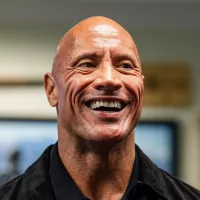
Dwayne The Rock Johnson is a multifaceted American entertainer renowned...
Facebook is a social media and networking service created in...
California is a U S state on the Pacific Coast...

Phillip Jack Brooks CM Punk is a professional wrestler and...
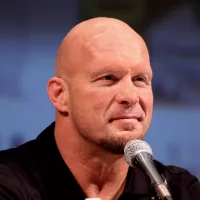
Stone Cold Steve Austin is an American media personality actor...
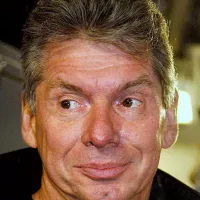
Vincent Kennedy McMahon is an American businessman and former professional...
Trending

50 minutes ago Scott Galloway's 'Unsubscribe' Movement: A Fantasy? Boycott Against Tech Giants Gaining Traction
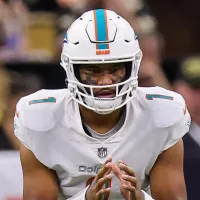
50 minutes ago Miami Dolphins unlikely to trade Tua Tagovailoa amidst quarterback drafting considerations.

51 minutes ago USA Dominates Sweden, Secures Spot in Women's Ice Hockey Final at Olympics
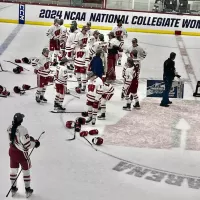
51 minutes ago Laila Edwards: A Cleveland Star Soars in US Hockey, Embracing History, Blazing Trails.

51 minutes ago Abbey Murphy's hit on Emma Söderberg sparks outrage during Sweden's game.

4 months ago Jannik Sinner Dominates, Reaches Paris Masters Final, Eyes No. 1 Ranking Return
Popular

Kid Rock born Robert James Ritchie is an American musician...
Randall Adam Fine is an American politician a Republican who...

Pam Bondi is an American attorney lobbyist and politician currently...

Barack Obama the th U S President - was the...
The Winter Olympic Games a major international multi-sport event held...

XXXTentacion born Jahseh Dwayne Ricardo Onfroy was a controversial yet...